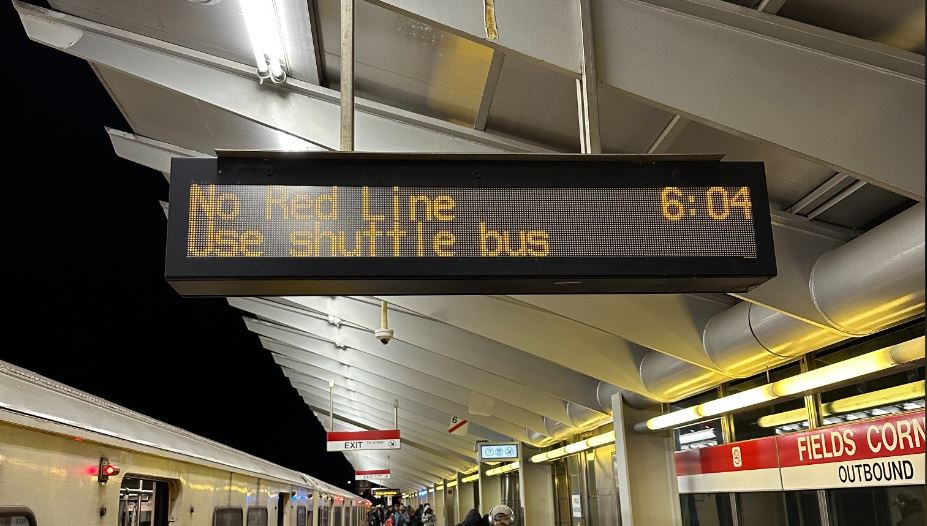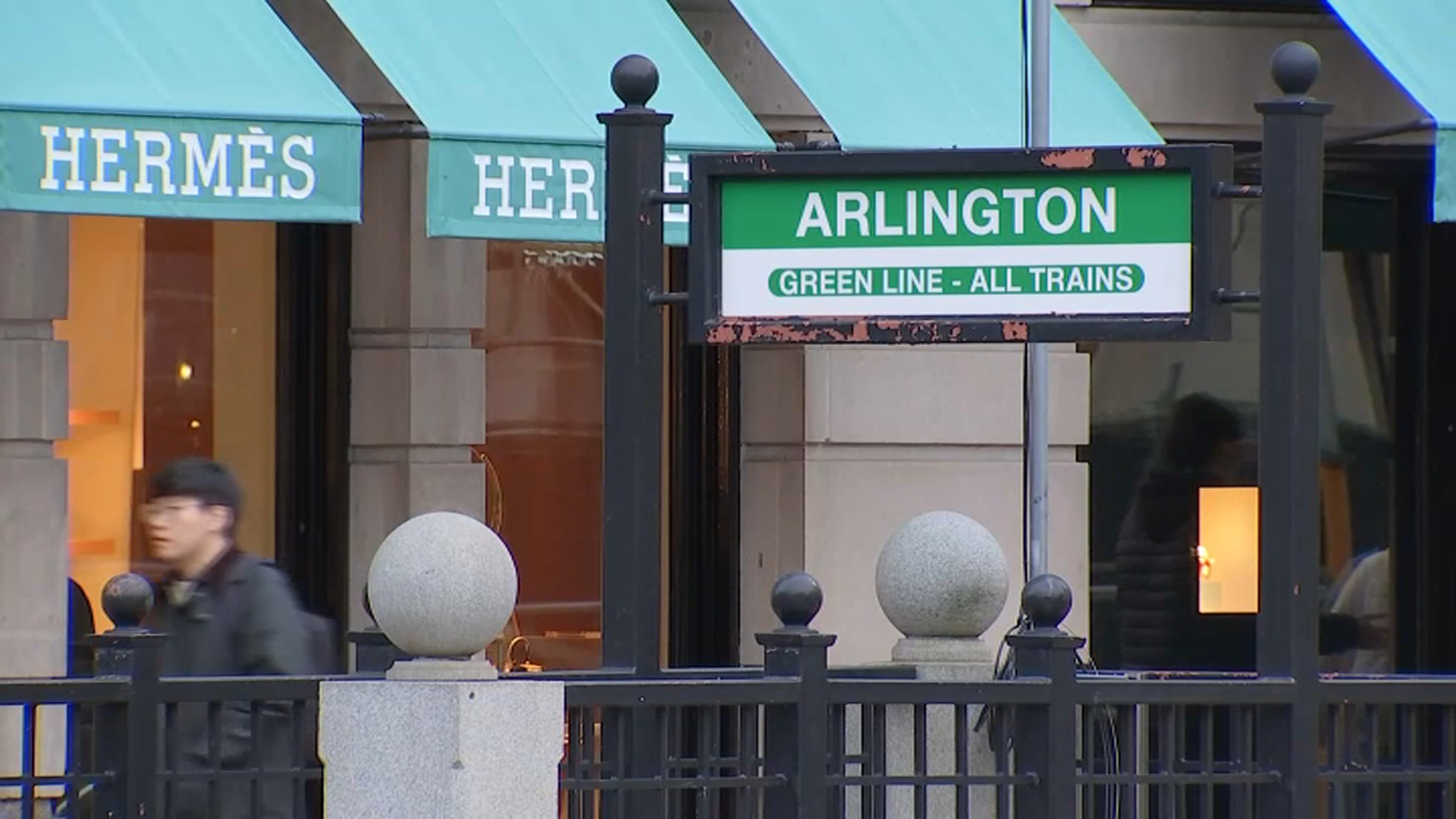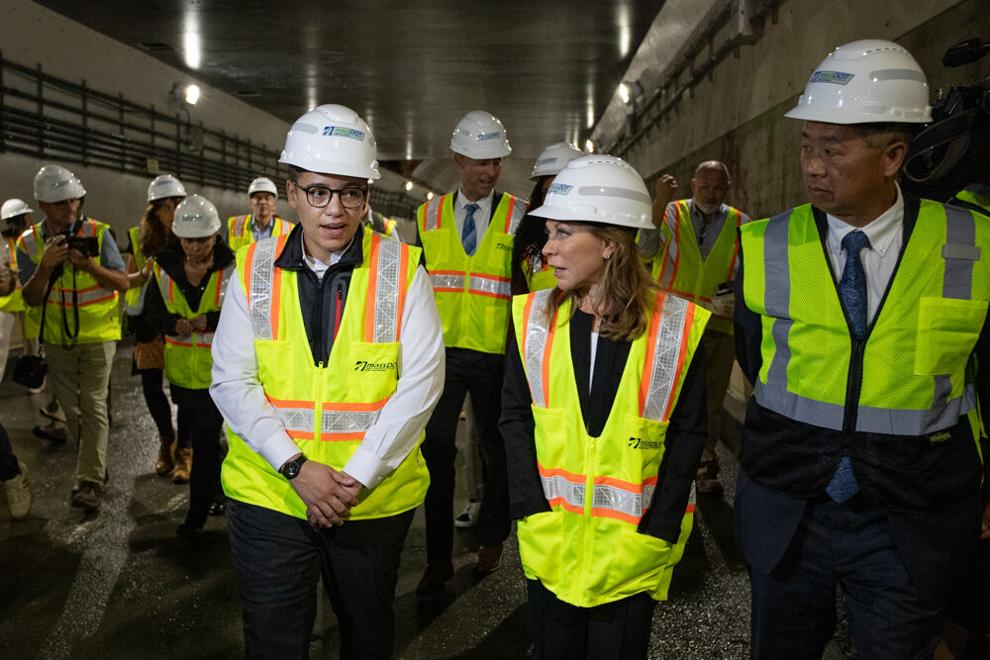The Massachusetts Bay Transportation Authority says it will cost $24.5 billion to repair the system's many problems, according to an internal analysis released Thursday.
That cost includes only repairs and not any upgrades to the system.
WATCH ANYTIME FOR FREE
>Stream NBC10 Boston news for free, 24/7, wherever you are. |
You can read the full report here.
“Restoring reliability and ensuring safety are priorities as we rebuild MBTA infrastructure. Understanding and acknowledging the significant resources needed to bring our system to a State of Good Repair is just one step towards fixing our infrastructure to deliver more robust and frequent service," MBTA General Manager and CEO Phillip Eng said in a statement. "The MBTA is one of the oldest transit agencies in the country, and while there are a number of contributing factors, it’s clear that years of underinvestment have added to the cost of bringing our system back to a state of good repair."
Get updates on what's happening in Boston to your inbox. Sign up for our >News Headlines newsletter.
The T rolled out its first new capital needs assessment since 2019, when officials under the Baker administration projected a roughly $10 billion cost to replace all outdated MBTA infrastructure with modern alternatives.
The new estimate is nearly two and a half times more expensive than the last capital needs assessment, which officials said is driven by a combination of factors including stinging construction inflation and MBTA assets aging faster than they are being replaced.
Officials also updated their methodology this time around. As a result of changes to the T's asset management systems, the latest study counted 83,683 individual assets to produce its cost estimate, compared to 59,073 assets in 2019.
The highest share of poor conditions is on the T's subway and trolley tracks. Nearly 90% of those stretches -- some of which have been unable to support full-speed travel for months due to unaddressed defects -- are outside a state of good repair, representing $2 billion in costs, according to the T's assessment.
The breakdown of the repair costs is as follows:
- Facilities: $6.4 billion (35% of assets)
- Rolling Stock: $2.4 billion (55% of assets)
- Equipment: $52 million (28% of assets)
- Structures: $5.3 billion (22% of assets)
- Signals – Commuter Rail: $1.3 billion (80% of assets)
- Signals – Transit: $753 million (53% of assets)
- Track – Commuter Rail: $1.2 billion (9% of assets)
- Track – Transit: $2.0 billion (89% of assets)
- Power: $5.1 billion (76% of assets)
Transportation consultant Keith Millhouse told NBC10 Boston he can't remember a "fix it" bill quite like this in his decades of work in the field.
"When you kick the can down the road for so many years you get to an eye-popping number," he said.
Eng discussed the new assessment at a board meeting Thursday, one day after Transportation Secretary Monica Tibbits-Nutt described the need for a "hard, hard discussion" about financing the transit agency.
The MBTA said it's already working on some of the repairs, including track work on the Red Line’s Ashmont Branch and Mattapan Line that was completed late last month.
“Know that we are committed to aggressively addressing our immediate needs — like the recent 16-day outage on the Ashmont Branch to perform track work — as we strive to deliver a modernized system to serve future generations,” Eng said.
Kate Dineen, president and CEO of the A Better City business group, described the report as "confirmation of what was already clear to T riders and supporters -- the MBTA is suffering from a legacy of underinvestment and needs more funding to get the system back on track."
"Now, the Administration, elected officials, and advocates must come together to develop an actionable plan to identify new sources of revenue to address this critical backlog, as well as the investments needed [to] modernize, decarbonize, and fortify our system from the worsening impacts of climate change," Dineen said in a statement.
Massachusetts Congressman Seth Moulton also issued a statement Thursday calling the T's announcement "the honest assessment we've been waiting for." He added that "$24.5 billion is a big number, but it’s not shocking given the accumulation of decades of under-investment."
"While other transit agencies are building automated rail with fast trains every minute, we've let ours erode to the point that it's faster to walk in some places," Moulton said. "How do we expect to reduce our terrible traffic if you can't even trust your train to not derail or catch fire? Last year, I called for a fundamental change in how the T functions as an organization. This is yet another wake-up call. If major changes are not made, we'll be dealing with the exact same, or worse, issues for years to come. Whether you use the T or not, every one of us in Massachusetts suffers from having a transit system we can’t trust."
The MBTA, which oversees the nation’s oldest subway system as well as commuter rail, bus and ferry service, has come under intense scrutiny in recent years for a series of safety issues that led to a federal review and orders to fix the problem. It has recently been plagued by slow zones, the delayed delivery of new vehicles and understaffing.
State House News Service and the Associated Press contributed to this report.




